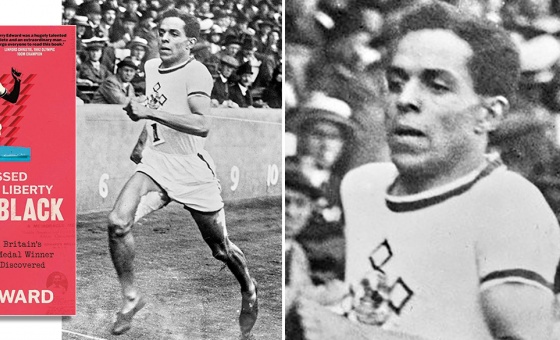This is the last article you can read this month
You can read more article this month
You can read more articles this month
Sorry your limit is up for this month
Reset on:
Please help support the Morning Star by subscribing here
IT’S been a year since Brazil’s first female President Dilma Rousseff of the Brazilian Workers’ Party (PT), was removed from office.
The mechanism used to remove her was devious, undemocratic and tantamount to a parliamentary coup that enabled the right wing opposition, who had been defeated at the ballot box, to install Michel Temer as President on a new, right-wing programme.
This illegitimate president has gone on to slash budgets for healthcare, education and social schemes, has scrapped environmental and indigenous protections, and also rolled back workers’ rights.
When Dilma’s controversial impeachment was passed on 31 August 2016, on the grounds of ‘budget manipulation,’ critics pointed to the growing evidence that the key orchestrators of the coup were themselves involved in a fraud and corruption. Internationally, the process was widely labelled a ‘parliamentary coup’ as it succeeded in removing the Workers’ party from office, after 13 years in Government, without the Brazilian people getting a say. The scale of this democratic outrage is staggering when you consider that over 50 million people in Brazil had voted in Dilma as their President.
Despite the fact that Dilma herself was cleared of corruption by a Senate report in the run up to the impeachment, Brazil’s largest media conglomerate, 'Globo', were happy to portray her as corrupt, championing her coup orchestrators as the saviours of the country, while ignoring the mass resistance to her removal.
Even leaked wiretaps revealing ministers were collaborating in her removal to stop a widening corruption investigation was not enough to stop the coup.
Now, with hindsight, those of us who saw the true motives of the coup have been proven right. Numerous ministers of Temer’s administration have been forced to resign over corruption scandals; Eduardo Cunha, former head of the lower house and key figure behind the impeachment is in jail and even Temer himself has been caught on tape endorsing bribes for the silence of witnesses, including Cunha himself.
When Temer became the first-ever sitting President to be formally charged with corruption, he was able to use his political allies to avoid investigation. Consequently this last year in Brazil has seen an innocent President removed and an unelected one protected by the old elite.
During their year in power, the right wing administration has been able to enforce a raft of neoliberal reforms that would have never been considered under Dilma or the PT.
They have implemented an agenda that will hurt millions, without a single vote from the public being cast and Temer’s popularity currently languishes in single figures.
In December 2016, the coup Government implemented a 20 year freeze on healthcare and education spending that led to thousands mobilising in the street against it and widespread criticism in the international community. The UN special rapporteur on human rights called it a measure ‘lacking in all nuance and human compassion.’
Environmental measures have been stripped back, and indigenous protections weakened, while Temer has even moved to relax the definition of slavery and stopped the publication of the ‘dirty list’ that named and shamed companies which were practicing modern slavery.
Rights enjoyed for decades are being removed, including through the new labour law making it harder for workers to join unions and giving employers greater power to set wages and reduced health and safety regulations. ITUC leader Sharron Burrows even went as far as to label the labour law changes a ‘recipe for corporate greed.’
A huge privatisation agenda was also announced at the end of August.
While these dangerous policies spell bad news for future generations, the resistance to the coup has been uplifting. Mass mobilisations have been held in support of Dilma and huge strikes and rallies have taken place against the harsh austerity measures.
One figure who has been key in the resistance is former two-term President Lula da Silva, now the most popular politician in Brazil. Lula oversaw a period of immense success for the country lifting millions from poverty with his ground-breaking social programmes while simultaneously turning Brazil into an economic powerhouse that received worldwide praise at the time.
Millions of Brazilians have called for direct elections to be held and Lula has been pegged as the Workers’ Party candidate. His popularity has caught the attention of the country’s right wing and there has been a concerted legal and media campaign to discredit the former President to stop him standing in the election. This orchestrated effort has been branded ‘lawfare’ by his legal team, headed by the renowned QC Geoffrey Robertson, who says Lula's human rights have been infringed.
For those of us calling for the return of democracy to Brazil, Lula’s battle is as important as Dilma’s was last year. With his social programmes under threat for the first time in a decade, which will detrimentally impact on the lives of millions of Brazilians if they are removed, Brazil’s struggle must be fought internationally as well as at home.
Chris Williamson is a Labour MP, President of Labour Friends of Progressive Latin America and is involved in the No coup in Brazil initiative. Find out more from Chris when he speaks alongside Julia Felmanas of the Brazilian Workers’ Party and Geoffrey Robertson QC at the upcoming event: ‘O Brasil resiste! Stand up for Democracy & Social Progress’, 128 Theobald’s road, WC1X 8TN, Thursday September 7, 2017 at 6.30 pm. Register on the door from 6pm, or online at http://bit.ly/standupforbrazil










